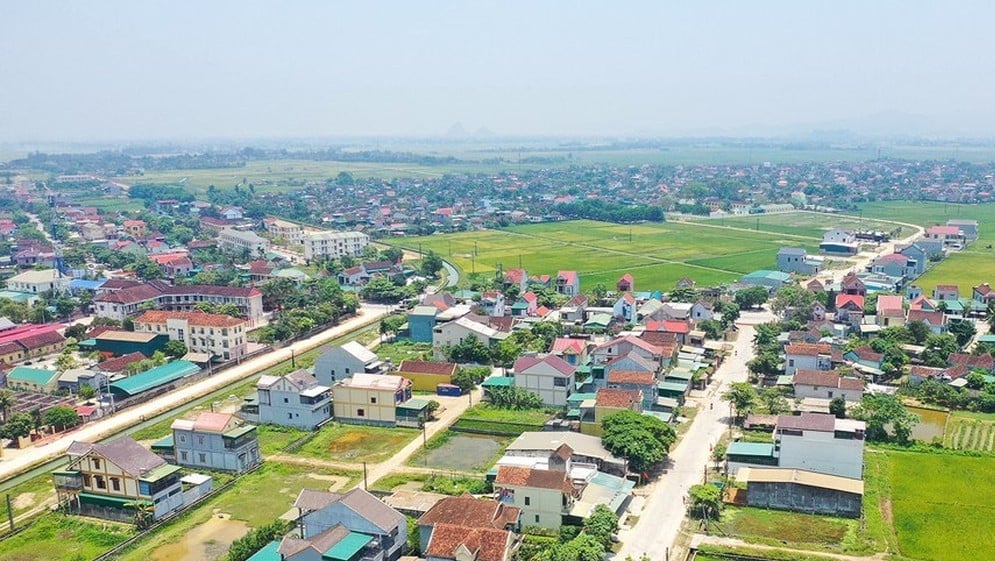October 28, 2025 | 19:04 GMT +7
October 28, 2025 | 19:04 GMT +7
Hotline: 0913.378.918
October 28, 2025 | 19:04 GMT +7
Hotline: 0913.378.918
According to the Ministry of Home Affairs, 52 provincial administrative units are implementing the arrangement, and 11 are not (Hanoi, Hue, Lai Chau, Dien Bien, Son La, Lang Son, Quang Ninh, Thanh Hoa, Nghe An, Ha Tinh, Cao Bang).
There are 23 arrangement options for 52 provincial-level administrative units to form 23 new provincial-level administrative units.
After the reorganization, the country has 34 provincial-level units, including six centrally-run cities (Hanoi, Hai Phong, Hue, Da Nang, Can Tho and Ho Chi Minh City) and 28 provinces (Lai Chau, Dien Bien, Son La, Lang Son, Cao Bang, Tuyen Quang, Lao Cai, Thai Nguyen, Phu Tho, Bac Ninh, Hung Yen, Ninh Binh, Quang Ninh, Thanh Hoa, Nghe An, Ha Tinh, Quang Tri, Quang Ngai, Gia Lai, Khanh Hoa, Lam Dong, Dak Lak, Dong Nai, Tay Ninh, Vinh Long, Dong Thap, Ca Mau, An Giang).

The Government approved the Project for the whole country to have 34 provinces and cities, 3,321 communes, wards, and special zones, and no district-level organization. Photo: Yen Thanh.
According to the Ministry of Home Affairs, the organization of public consultation and approval of People's Councils at all levels showed a high consensus rate, with the national average of 96.19%. 100% of People's Councils at provincial, district, and communal levels of 52 provinces and cities voted in favor of rearranging provincial administrative units in their localities.
At the commune level, the project shows that after the rearrangement, the country will reduce from 10,035 commune-level units by 6,714 units (a decrease of 66.91%) to 3,321 commune-level administrative units. 128 communes remain unchanged and will not be rearranged because they meet the criteria for natural area and population size or have special factors (isolated location).
Commune-level administrative units include 2,636 communes, 672 wards, and 13 special zones. Of these, 3,193 were newly formed through the arrangement, merger, or adjustment of administrative units.
Regarding the organizational plan, the Project clearly states that the People's Council at the commune level will establish two new committees: the Legal Committee and the Economic-Social Committee.
The People's Council at the commune level consists of a Chairman, 1 Vice Chairman, the head and 1 Vice Head of the Legal Committee, the economic-social Committee, and People's Council delegates of the commune-level administrative unit. The arrangement of full-time positions of the People's Council at the commune level is implemented according to the provisions of the Law on Organization of Local Government 2025 (amended) and instructions of the competent authorities.
Regarding the commune-level People's Committee, in terms of organizational structure, the commune-level People's Committee consists of a Chairman, 2 Vice Chairmen, and members according to the provisions of the Law on Organization of Local Government 2025 (amended). The organization of specialized agencies and other administrative organizations under the commune-level People's Committee is implemented according to the Government's regulations.
The National Assembly is expected to pass a Resolution on merging provincial administrative units on June 24.
The National Assembly Standing Committee will soon approve the project to arrange commune-level administrative units in 2025.
Translated by Quynh Chi

(VAN) Viet Nam’s rice exports struggle after the Philippines halted imports. Beyond the efforts of businesses, government contracts play a key role.

(VAN) An Giang Province calls on the people to combat IUU fishing; violations may result in a VND 1 billion fine or imprisonment of 15 years.

(VAN) Sludge treatment has been a major challenge for Hanoi, which may seem minor at first glance but has a profound impact on sustainable development.
/2025/10/24/1814-3-091309_468.jpg)
(VAN) With an estimated value of around $10 trillion by 2028, Halal is becoming a promising new market for Vietnam's agricultural and food exports.

(VAN) The Ministry of Agriculture and Environment has issued Decision No. 4082/QD-BNNMT on the Ministry’s plan to implement the Prime Minister’s Decision No. 1422/QD-TTg dated November 19, 2024.

(VAN) The Prime Minister has requested the Ministry of Agriculture and Environment to coordinate with the Government Office in compiling weekly reports on the results of combating IUU fishing by ministries, sectors, and localities.
/2025/10/22/2133-3-181753_14.jpg)
(VAN) In Tan Thuy commune (Vinh Long), the 'party members mentoring fishermen' model has shown clear effectiveness, helping fishing vessels operate in compliance with regulations and eliminating violations in foreign waters.